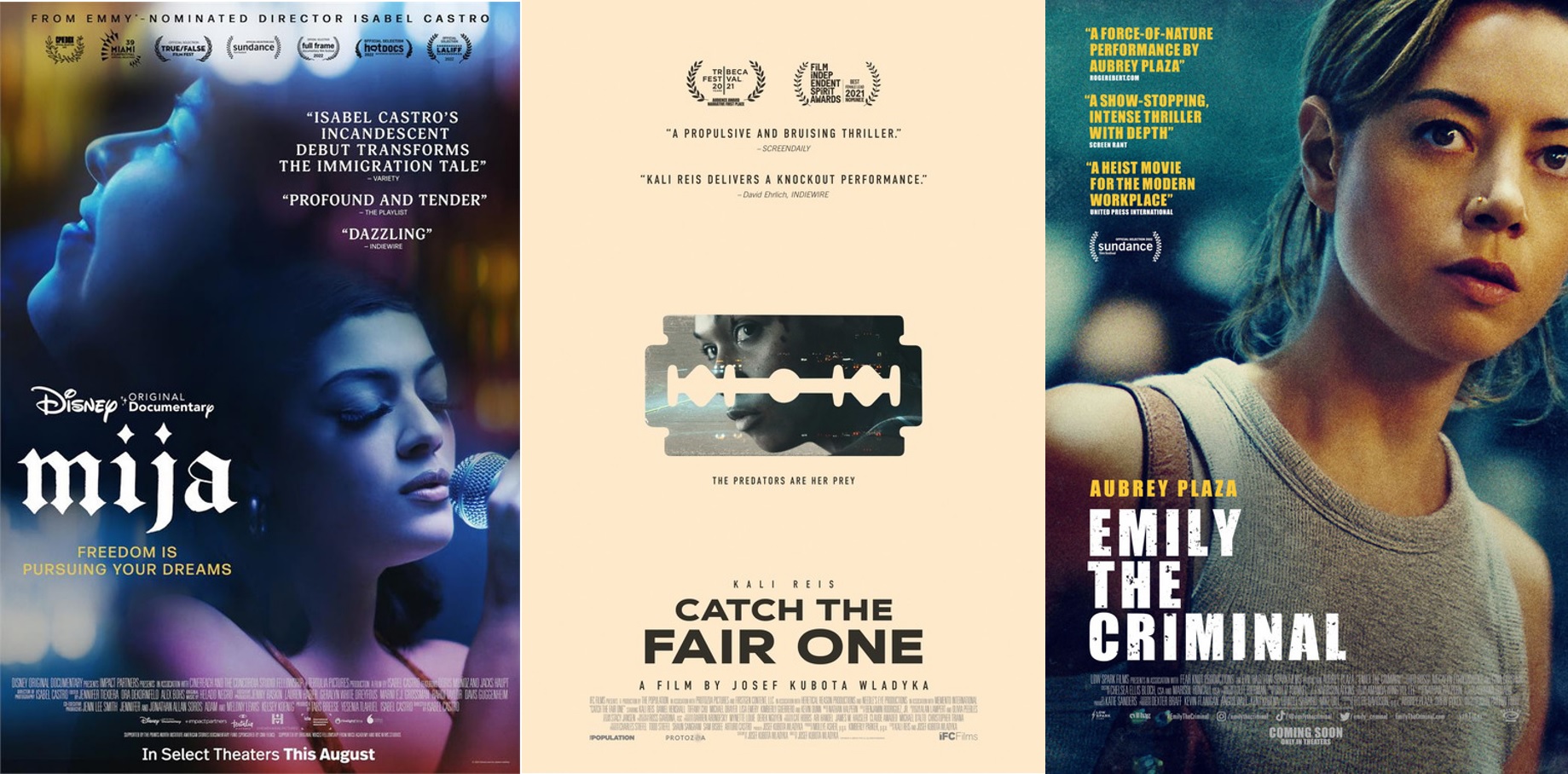We asked ten contributors to pick three films from 2022 that they think everyone should see before making their top ten lists of the year. These are the choices of Katie Rife.
Technically, the movies “came back” in 2021. But 2022 felt like the real return to form, transitioning from mostly digital releases—and an all-virtual Sundance—in the first few months of the year into big-screen summer blockbusters and in-person fall festivals. But while I was as happy to watch movies on big screens in packed rooms again as anyone else, there was one aspect of pandemic-era film culture that I miss. While the period where everything was being released digitally did lack a certain sense of spectacle, it also leveled the playing field between indies and studio films in a way I hadn’t seen before. And now that we’re “back to normal” (whatever that means), the need to support under-the-radar films and filmmakers is stronger than ever.

“Mija”
The best music documentaries harness the emotional power of the art form to convey an essential truth, either about the people making the music or the people who listen to it. “Mija” adds a third group to this equation: The people who make the music possible. “Mija” director Isabel Castro has a lot in common with her primary subject, Doris Muñoz: Both are young Mexican-American women, and both are making their own way in creative fields—Castro as a filmmaker, and Muñoz as an independent (i.e., self-employed) manager of alternative Latinx musicians. Muñoz feels a complicated mix of guilt, resentment, loyalty, and gratitude towards her immigrant parents, and the artists she represents have similarly complex feelings about family, home, ambition, and creativity.
Perhaps because of its director’s familiarity with the particulars of her subjects’ lives and relationships, “Mija” paints a more nuanced portrait of the immigrant experience in America than many documentaries on the subject. Too often, immigrants, particularly undocumented ones, abstracted into “issues” to be debated rather than recognized as complicated, contradictory people living real human lives. “Mija” is the antidote to that, both in terms of content and storytelling. Castro is a silent, offscreen presence in “Mija,” but her affection for these young people bleeds through into the film. Castro’s pacing is laid back, like her subjects’ attitudes towards life; her compositions are colorful, like their culture. Add in the universal language of music, and you have a wonderful example of Roger Ebert’s famous quote about cinema as an “empathy machine.”

I could tell you to watch “Catch the Fair One” because it raises awareness about an urgent issue—the epidemic of violence, particularly sexual violence, against Indigenous women in North America. And that would be true: Star Kali Reis co-wrote the script, which incorporates both Reis’ experience as a professional fighter and her Indigenous background into the story, about a washed-up boxer named Kaylee (Reis) who risks it all in a dangerous one-woman mission to save her little sister from sex traffickers. But this isn’t just an important movie. It’s also a brutal, uncompromising, dark, propulsive one. This is the kind of movie that leaves a mark.
Fans of Jeremy Saulnier in particular will find a lot to love in “Catch the Fair One,” which shares a gritty, lower-class milieu (the film is set in upstate New York in winter, and each setting is bleaker than the last) and shocking bursts of intense violence with the “Blue Ruin” director’s work. But while this movie doesn’t pull its punches (no pun intended), Reis’ intense performance and personal investment in the story give “Catch the Fair One” something to recommend it beyond simple blood-drenched kicks. There’s a current of emotional torment underneath the character’s athletic physicality that’s strong enough to pull you under and knock the wind out of you. So it probably shouldn’t come as a surprise that, although “Catch the Fair One” itself never broke through to the mainstream, it has served as a launchpad for Reis, who is set to star in the next installment of HBO’s “True Detective” opposite Jodie Foster.

On the other hand, Emily the Criminal did get a theatrical release in August of 2022. It also played at multiple festivals, including a debut at Sundance and a run at Chicago’s own Chicago Critics Film Festival. Reviewers praised the movie, and Plaza’s performance in particular; in her four-star review for this very website, Sheila O’Malley wrote, “ Plaza is a wild card. She takes risks … She doesn’t seem beholden to the industry and its demands as other more mainstream actresses do.” But all that being said, the prospect of Plaza’s performance being forgotten come awards season compels me to defend it.
Plaza’s background in comedy is essential to her success as a dramatic actress. Comedy forces an actor to get over the fear of looking silly, and Plaza is absolutely fearless as the title character in “Emily the Criminal.” Plaza can flip from sympathetic to scary with the flash of a crooked smile, and she keeps the audience guessing throughout the film. She squeezes an amazing amount of range out of her signature deadpan, which comes across as sarcastic, threatening, or both depending on the scene. Emily is a genuinely volatile character, and we’re never sure how deep her inner reserves of violence really go. And yet, we feel for her. It’s a meaty antihero role of a type that’s too rarely written for women. And the fact that Plaza also produced “Emily the Criminal” proves that she’s as driven and unstoppable as her character. Ignore either of them at your own risk.












